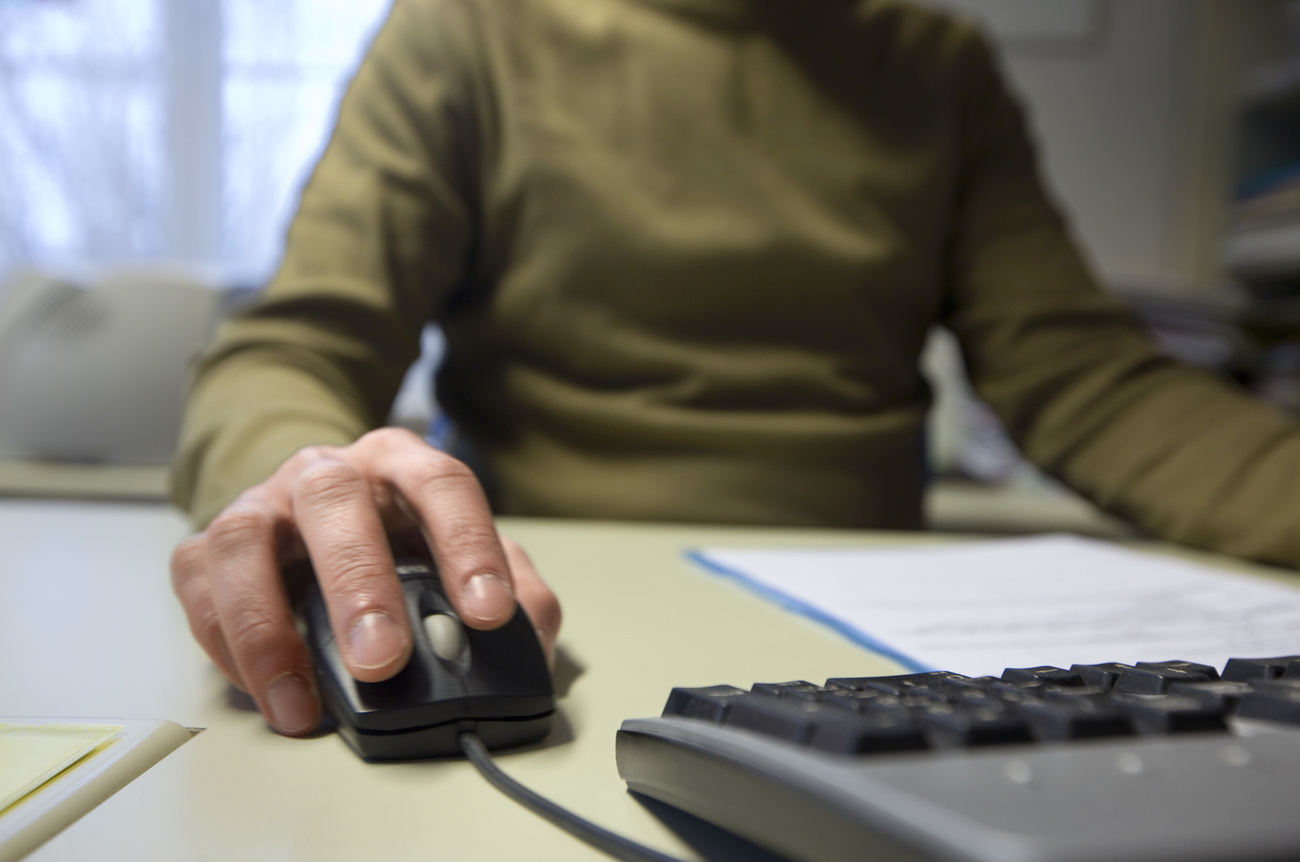
Swiss model detects stress from how we click and type

Researchers at Federal Technology Institute ETH Zurich have developed a model to detect stress from how people use their computer mouse and keyboard, which they say could help prevent further workplace stress.
“How we type on our keyboard and move our mouse seems to be a better predictor of how stressed we feel in an office environment than our heart rate,” says study author Mara Nägelin, as quoted by an ETH Zurich press releaseExternal link on Tuesday. People who are stressed move the mouse pointer more often and less precisely, the study found. They also make more mistakes when typing.
The ETH researchers observed 90 study participants in the laboratory, performing office tasks that were as close to reality as possible, such as planning appointments or recording and analysing data. They recorded the participants’ mouse and keyboard behaviour as well as their heart rates. Researchers also asked the participants several times during the experiment how stressed they felt.
The researchers are currently testing their model with data from Swiss employees who have agreed to have their mouse and keyboard behaviour as well as heart data recorded at their workplace using an app. The same app also regularly asks the employees about their subjective stress levels. Results should be available by the end of the year, according to ETH Zurich.
But it says workplace stress detection also raises some thorny issues. “The only way people will accept and use our technology is if we can guarantee that we will anonymise and protect their data,” says psychologist Jasmine Kerr, co-author of the report. “We want to help workers to identify stress early, not create a monitoring tool for companies.”

In compliance with the JTI standards
More: SWI swissinfo.ch certified by the Journalism Trust Initiative



























You can find an overview of ongoing debates with our journalists here . Please join us!
If you want to start a conversation about a topic raised in this article or want to report factual errors, email us at english@swissinfo.ch.